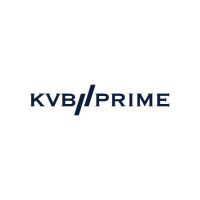Chinese listed companies are rapidly increasing share buybacks and dividends in response to regulatory pressures that mirror reform efforts in Japan and South Korea. Despite investor skepticism about significant governance improvements, these actions have sparked a market rally.
Official data shows that China-listed firms declared record cash dividends totaling 2.2 trillion yuan ($300 billion) for 2023, even as overall profits declined. Over 100 companies paid dividends for the first time.
Additionally, more companies are announcing share buyback plans to avoid delisting or other penalties under stricter regulations. These measures, aimed at enhancing investor returns and introduced in March, have led to a nearly 17% rise in the CSI300 index from its February five-year low.
Comparisons have been drawn to Japan's push for capital efficiency that boosted the Nikkei to record highs. However, a similar rally in China seems unlikely as fund managers view the reforms as market rescue efforts rather than genuine corporate governance improvements.
Government-controlled companies, which make up about 30% of market capitalization in China and Hong Kong, are tightly controlled by the ruling Chinese Communist Party, potentially causing conflicts of interest with non-state shareholders. In Japan, companies have been reducing strategic shareholdings as part of market-oriented reforms.
Investors have welcomed the increased payouts, with fund manager Yang Tingwu of Tongheng Investment noting the demand for higher dividends and more buybacks. However, he acknowledged that Chinese companies still have much to improve in corporate governance. Under the leadership of China's top securities regulator Wu Qing, companies are being urged to engage more with investors and enhance returns.
This approach is similar to Japan's corporate reforms and South Korea's "Value Up" program, according to John Pinkel, a partner at New York-based hedge fund Indus Capital, which recently increased its exposure to China. He noted that companies with large cash positions engaging in buybacks or raising dividends are particularly attractive.
The campaign in China has pressured many firms to pay dividends. Jason Hsu, chairman and chief investment officer of Rayliant Global Advisors, stated that Japanese firms respond well to regulatory pressure, and the same strategy is effective in China. Regulators aim to protect retail investors, prompting companies like Jilin Expressway Co and Fangda Special Steel Technology to change their plans and return money to investors after inquiries from the Shanghai Stock Exchange.
Furthermore, companies such as Chongqing DIMA Industry Co, SafBon Water Service, and Infund Holding Co quickly announced share buyback plans after warnings from stock exchanges about potential delisting due to low share prices.
Despite these measures, concerns remain, especially regarding state-owned enterprises (SOEs) tasked with social responsibilities that may conflict with shareholder interests. Unlike Japan's stock market revival, aided by foreign inflows, China faces geopolitical challenges, making global fund managers cautious.
Sunil Krishnan, head of multi-asset funds at Aviva Investors in London, noted that Western investors are often not a priority for Chinese companies, a structural issue they must accept. Nonetheless, investors have benefited from the market's progress.
Chi Lo, senior markets strategist at BNP Paribas Asset Management, remarked that while Chinese governance has room for improvement, efforts are being made.
Paraphrasing text from "Reuters" all rights reserved by the original author.














